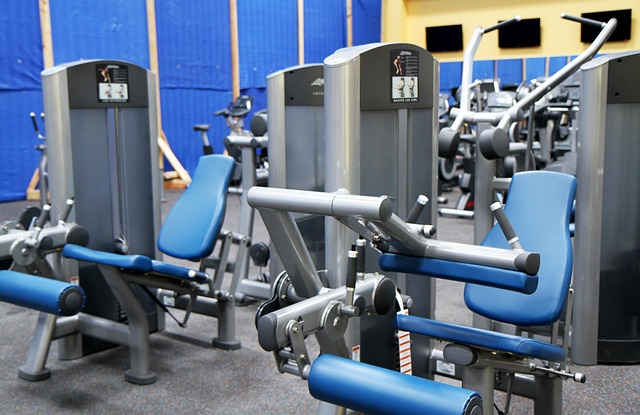Undertaking weight loss without medical supervision carries significant risks, including nutrient deficiencies, electrolyte imbalances, cardiovascular issues, and emotional eating disorders due to unsustainable practices. Doctor-supervised weight loss programs offer a comprehensive, safe approach by providing personalized recommendations, regular check-ins with healthcare professionals, and close monitoring of vital signs and progress. This ensures gradual, sustainable weight loss tailored to individual health profiles, enhancing success rates and fostering long-term behavioral modifications for better overall well-being. Technology integration through wearable devices and digital health platforms further enhances monitoring accuracy in these programs.
Weight loss journeys require more than just discipline; they demand medical oversight, especially as risks increase with severe or rapid weight loss. This article explores the significance of ongoing medical monitoring during weight loss, highlighting the advantages of doctor-supervised programs. We’ll break down effective monitoring strategies, the tools shaping modern weight management, and potential pitfalls of unsupervised attempts. Additionally, we offer tips for success in these structured programs, emphasizing their critical role in safe, sustainable weight loss. Discover why doctor-supervised weight loss programs are a smart choice for your health.
Understanding the Importance of Medical Monitoring During Weight Loss

Undergoing weight loss can be a complex and challenging journey, which is why understanding the importance of medical monitoring is crucial. Doctor-supervised weight loss programs offer more than just guidance on diet and exercise; they provide a comprehensive approach to managing health during this transformative process. Medical professionals play a vital role in ensuring that individuals lose weight safely and effectively while minimizing potential risks and complications.
Regular check-ins with healthcare providers allow for close monitoring of vital signs, blood pressure, heart rate, and other key health markers. This proactive approach helps in identifying any adverse effects or underlying health issues that may arise during weight loss. Additionally, doctors can provide personalized recommendations and adjustments to the individual’s plan, ensuring optimal results and a healthier trajectory moving forward.
Benefits of Doctor-Supervised Weight Loss Programs

Engaging in a doctor-supervised weight loss program offers numerous advantages. Professional guidance ensures safe and sustainable practices, tailored to individual health profiles and needs. This personalized approach accounts for unique dietary requirements, medical conditions, and lifestyle constraints, fostering better adherence to recommended protocols.
Such programs facilitate close monitoring of vital signs, progress, and potential risks, enabling timely adjustments to weight loss strategies. Doctor supervision instills confidence, provides accountability, and empowers individuals with the knowledge to make informed decisions regarding their health and well-being, ultimately enhancing overall success rates in achieving and maintaining a healthier weight.
Components of Effective Medical Monitoring for Weight Loss

Effective medical monitoring during weight loss involves a multi-faceted approach, typically incorporating nutrition counseling, physical activity guidance, and regular check-ins with healthcare professionals. Doctor-supervised weight loss programs emphasize these components to ensure safety and success. During each session, participants discuss progress, challenges, and any concerns with their doctor or nutritionist, who adjust the plan accordingly. This iterative process not only helps individuals achieve their goals but also maintains a healthy pace of weight loss, minimizing risks associated with rapid or extreme dieting.
Additionally, medical monitoring includes tracking vital signs, such as blood pressure and heart rate, to assess overall health and identify any adverse effects related to the weight loss plan. Regular blood tests may be conducted to monitor cholesterol levels, sugar control, and nutrient deficiencies, ensuring that the program remains tailored to the individual’s unique needs. This comprehensive approach ensures not only physical changes but also promotes long-term behavioral modifications for sustainable weight management.
Tools and Technologies Used in Medical Monitoring

In the realm of doctor-supervised weight loss programs, technology plays a pivotal role in tracking progress and ensuring safety. Wearable devices like fitness trackers and smartwatches are increasingly integrated into medical monitoring routines. These gadgets offer real-time insights into physical activity levels, heart rate variability, sleep patterns, and calorie burn—all essential metrics for evaluating metabolic changes during weight loss journeys.
Moreover, digital health platforms facilitate secure communication between patients and healthcare providers. Through these platforms, individuals can log their daily intake, exercise routines, and vital signs, enabling doctors to remotely assess progress and make informed adjustments to treatment plans. This tech-driven approach not only enhances the accuracy of monitoring but also allows for more personalized and effective doctor-supervised weight loss programs.
Potential Risks and Complications of Unsupervised Weight Loss

Unsupervised or unsupported weight loss attempts can lead to a range of potential risks and complications, often highlighting the importance of doctor-supervised weight loss programs. Without professional guidance, individuals may engage in unhealthy practices that could cause significant harm. For instance, rapid weight loss diets often result in nutrient deficiencies, electrolyte imbalances, and increased risk of cardiovascular events due to drastic changes in hormone levels.
Additionally, unsupervised weight loss can lead to a distorted relationship with food, causing emotional eating disorders or binge eating. These behaviors not only hinder the individual’s ability to maintain a healthy weight but also carry their own set of health risks. Professional monitoring ensures that weight loss occurs gradually and sustainably, minimizing these dangers and promoting overall well-being.
Tips for Staying Committed and Safe in a Doctor-Supervised Program

Staying committed and safe during a doctor-supervised weight loss program involves several key strategies. First, regular communication with your healthcare provider is essential. Discuss any concerns or changes in your health status promptly to ensure adjustments can be made to your plan as needed. Second, adhere strictly to the prescribed diet and exercise routines, as these are tailored to support both safe and effective weight loss. Regular monitoring by a doctor adds an extra layer of security, allowing for quick interventions if any issues arise.
Additionally, maintaining open lines of communication with fellow participants in the program can offer peer support and accountability. Tracking progress regularly, whether through measurements, weigh-ins, or other metrics your doctor recommends, helps keep you motivated. Remember, a doctor-supervised weight loss program is designed to prioritize both health and safety, so staying engaged and following guidelines will enhance your overall success in achieving and maintaining a healthier weight.
